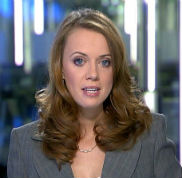Don't do it! Why a web blackout is not the answer to avoiding more riots
Following Britain's worst public disorder for a generation, stoked by social media websites and instant messaging, Prime Minister David Cameron said the government would look into the possibility of temporarily shutting down services such as Facebook and Twitter during any future riots.
While Mr Cameron is right, social media "can be used for ill," imposing such a draconian measure would put an end to his credibility as a spokesman for freedom of speech. As Jeff Jarvis of the Guardian asks: "Who is to say what communication and content should be banned?" It's reminiscent of Nicolas Sarkozy's "internet civilisé", with bells on.
Eric Olander pointed out in this week's edition of Tech 24 that Cameron has fallen into the trap of self-contradiction, conveniently forgetting this comment he made back in February in Kuwait, praising the role of social media in the Arab Awakening: "[The movement] belongs to a new generation for whom technology - the internet and social media - is a powerful tool in the hands of citizens, not a means of repression."
How can he now legitimately criticise China's censorship of Twitter or Saudi Arabia's monitoring of Blackberry Messenger?
A further irony is that internet connectivity was a key Tory campaign promise going into last year's general elections. The Conservatives pledged to make Britain the fastest broadband country in Europe, getting 100Mbps to most homes by 2017. Just this week, the government announced it was ploughing £363 million into the sector to push superfast broadband to the most rural parts of the country. Get more people connected only then to decide that some deserve to lose the privilege.
Another problem is that the move paints the PM - a man who has previously had a good tech record (love it or hate it, the WebCameron video diary was pretty innovative when it started out, leaving Gordon Brown looking like a digital dinosaur) - as out of touch with how the internet functions. Like Mubarak, he could be in for a nasty surprise when he realises that as fast as government limits the web, the web finds ways to circumvent the roadblocks. Plus no one knows how any potential blackout would work, if at all. Would ISPs and tech companies have to get on board? Would it cost them money? Who decides when to pull the plug? Is it even legal?
The major social networks have been summoned for a meeting next Thursday with another MP hardly known for her tech prowess: Home Secretary Theresa May. So far only Facebook has confirmed it will definitely attend. If the e-G8 proved anything, it's that while Silicon Valley might be happy to chew the fat about keeping tabs on social media use, any talk of regulation sends them running for the hills. As Mark Zuckerberg said in Paris: "You can't isolate some things you like about the Internet and control other things that you don't."



1 Comments
Post new comment